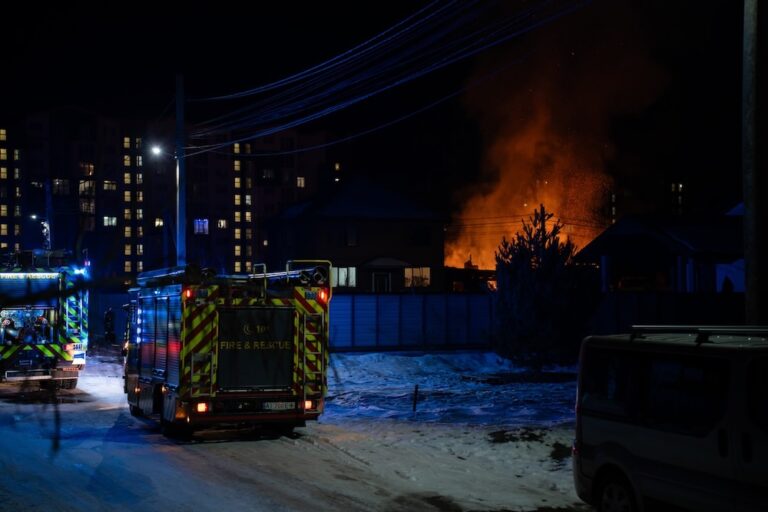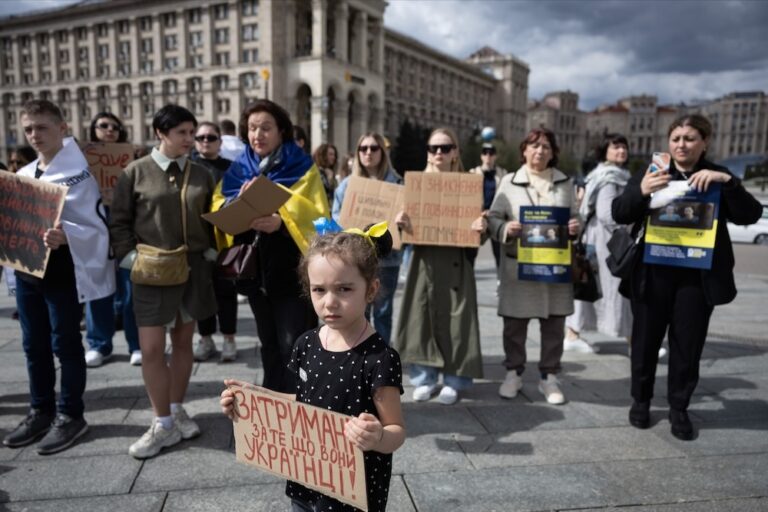Research conducted by IMI shows a drastic decline in the state of freedom of expression in Ukraine since President Victor Yanukovych came to power in February 2010.
(IMI/IFEX) – We, the undersigned journalists, defenders of free expression and members of the International Freedom of Expression eXchange (IFEX), express our concern with the escalating threats to freedom of expression in Ukraine. We join our Ukrainian colleagues and journalists in denouncing censorship and demand that Ukrainian authorities stop interfering with the work of the media.
According to monitoring research conducted by the Institute of Mass Information (IMI) and other organisations, there is evidence of a drastic decline in the state of freedom of expression in Ukraine since President Victor Yanukovych came to power in February 2010. The number of attacks against journalists has dramatically increased and the editorial independence of some prominent media outlets has been compromised. Journalists have stated that they are forbidden from covering certain topics on air and that direct pressure is exerted by the top management of the channels in order to influence editorial decisions.
On 6 May 2010, the news reporters from national TV channel 1+1 voiced their concerns against the censorship in an open letter: “They [station management] forbid us from covering certain topics and facts. Reports that include criticism of the authorities are taken off the air for political reasons. The final decision regarding what is broadcast is made not by the news program editor or by the chief editor of TSN news magazine, but by the general director of 1+1 TV channel.”
We also raise concern with recent tactics aimed at depriving television channel TVi of its frequencies. A rival channel, Inter, owned by the wife of the head of the Security Service of Ukraine (SBU) has claimed it was granted the frequencies and has appealed to the National Broadcasting Council to obtain them. This type of administrative harassment hampers media freedom; independent media and the national broadcasting council should be free to operate according to the industry’s policies and procedures.
On 7 May 2010, journalists working for national TV channel STB also denounced systemic censorship. In a separate open letter, they stated that since the presidential election, “the focus has shifted from critical independent coverage of government activities to stories covering the official activities of the Minister of Education Dmytro Tabachnyk, the Organization of Ukrainian Nationalists-Ukrainian Insurgent Army (OUN-UPA), and the official interpretation of Holodomor – the mass starvation of Ukrainians in 1932-1933.”
In April, authorities attempted to restrict media access to a press conference held by the President of Ukraine and his Russian counterpart in Kharkov. The authorities barred prominent journalist Mustafa Nayem of the independent online newspaper Ukrainska Pravda from attending the press conference, citing press accreditation issues. During the press conference, historical sovereignty agreements were announced that outline sharing arrangements for the country’s oil and gas sector and extend the presence of a Russian military base in Ukraine. Journalists were prevented from asking critical questions about the agreements.
We thoroughly condemn the systematic undermining of the media’s independence in Ukraine and call on government authorities and media management to undertake the following steps to restore confidence in the country’s free press, a cornerstone of any functioning democracy:
1. We appeal to the Ukrainian authorities to abstain from any intervention that compromises the independence of the media;
2. We call on the management of media outlets, including STB and 1 + 1 television stations, to end interference in the editorial decision-making processes and allow these outlets to cover matters of the public interest independently;
3. We call on journalists and media outlets to outline and uphold transparent editorial policies that guarantee freedom of the press;
4. We encourage journalists to report cases of interference in their work to media monitoring bodies, citing provisions outlined in the editorial policies of the media outlets they work for;
5. We call on international organisations to publicly support this statement and to express solidarity with Ukrainian journalists who are fighting for a free press.
Signed,


